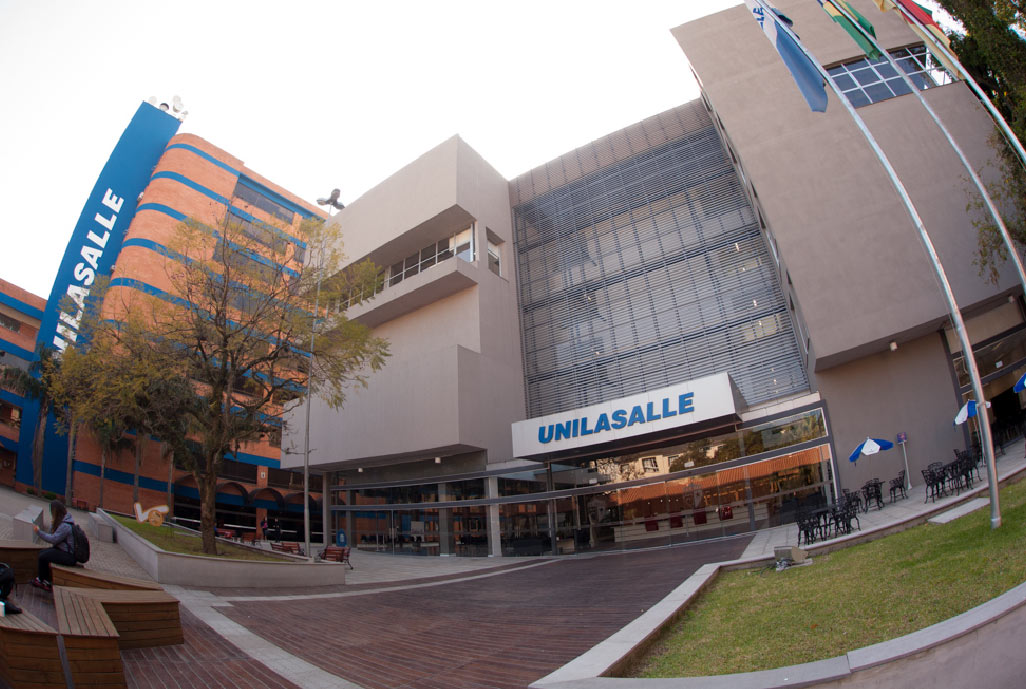
Specialization
With more than 20 years acting in the lato sensu graduate studies field, Unilasalle presents in its portfolio specialization programs with distinctive physical spaces, faculty composed by masters, doctors and professionals with notorious knowledge. The pedagogical proposals are innovative and focused on a conception of continuing education, having as the main goal promoting the integration process among education excellence, professional development and scientific output.
Take a look at our courses
Check Availability interelacoes@unilasalle.edu.br
Master Courses
The Graduate Program in Education focuses its research in the area of Education, aligning it with various analyses of models of teacher education in relation to educational practices, teaching and learning processes, and human development. It also studies educational management in the context of educational and social policies, as well as in relation to educational institutions. It investigates the multiple relationships between education, digital and virtual technologies and their didactic-pedagogical and cultural implications in the contemporary world. Our mission is to act on the elucidation of issues connected to education, promoting both practical and theoretical perspectives on professional training and higher education, as well as on the production and dissemination of high-level research in Education.
The origins of the Graduate Program in Education are intimately connected to the centennial educational tradition of the La Salle network in Brazil. It has operated for more than 45 years in higher education in the city of Canoas and the metropolitan area, creating partnerships between city and state powers for teacher training in order to implement public policies in the educational field. Education master course started in 2007 and the Ph.D in 2014. The program also supports partnerships between professors and researchers from international institutions such as Utah State University and Maryland University – College Park, in the United States, Universidad Autónoma de Barcelona and Universidad de La Laguna in Spain, Universidad do Algarve and Universidad de Lisboa in Portugal, Université Lyon 1 in France, Universidad Del Atlántico in Colombia, and Universidad de Los Lagos in Chile.
Program curriculum – Master´s Degree in Education
Program curriculum – Doctor’s Degree in Education

The Graduate Program in Environmental Impact Assessment adopts an interdisciplinary perspective on the development of academic projects in the environmental area, focusing on environmental impacts. Its main goals are: (1) To promote the education of competent professionals, capable of elaborating innovative proposals in face of emerging problems, linked to the environmental impacts generated by human activities; (2) To improve knowledge on management and environmental technologies, as well as on the diagnosis and monitoring of biodiversity; (3) To produce knowledge on Environmental Impacts issues that contribute to the discussions on environmental management, technological innovation and protection of the national biodiversity
Our MA in Environmental Impact Assessment started in 2009 and supports professionals from different areas: Exact and Earth Sciences, Biological Sciences, Engineering, Agrarian Sciences, Health Sciences, Applied Social Sciences, Human Sciences and Multidisciplinary. The Graduate Program in Environmental Impact Assessment concentrates its research in the interdisciplinary area focusing on environmental issues, and started associated, for external evaluation purposes, on the Engineering area in the Ministry of Education, and most recently is associated with the Environmental Sciences area.


The science of human development seeks to study the dynamics of inter-systemic relations inside and outside the individual, using social and biological interfaces from a set of factors that encompass different areas of knowledge. The Professional Master’s Degree in Health and Human Development is focused on the analysis and scientific understanding of health / disease processes and their implications for human development. Our Program is composed by highly diverse and qualified faculty, and its curricular matrix is fundamentally based on knowledge from biomedical, educational, psychological and environmental studies.
The Professional Master’s Degree in Health and Human Development started in 2013 and integrates a scenario of opportunities in which enables professionals who work in Health areas to expand their knowledge, promoting human development in different contexts, can deepen it academically to apply and improve their professional practices and thus, contribute to the generation of products that can act in the promotion of social development. Our Program contributes to the achievement of competencies that can qualify and make professionals more capable to develop associations between theory and practice, and an in-depth reflection on the health / illness processes in people inserted in different contexts.
Program curriculum – Master´s Degree in Health and Human Development

The Graduate Program in Law focuses on studying the issue of the growing distance between the laws enacted and their compliance by society and, on the other hand, looking into how social changes impact, influence, and change Law in a symbiotic relationship, while making use of scientific investigation to examine the reasons for such distancing between the laws and the Brazilian social reality. In other words, the program is meant to analyze the differences between the legislated law and that which happens in the world of facts, based on the assumption that Law is a social phenomenon, that is, it stems from such a world and is directed to society.
Several actions have been carried out to implement the Graduate Program in Law Project. All of the faculty’s contributions were taken into account when the new proposal was being designed, and it is therefore a joint construction. Such preparation began in February 2012 and obtained final approval by internal bodies, and the program was submitted in the first semester of 2013. After being recommended by CAPES, the Program effectively started in September 2013, with students being selected the same year for the Master’s degree in Law, area of concentration “law and society”, and classes beginning in 2014. On June 06, 2019, the proposal of the new Ph.D course was approved. Thus, the Postgraduate Program in Law was consolidated, having the following questions as fundamental for research: a) the positivization of Law and its compliance by society; b) the observation of social transformations and the perception of how they influence and modify the Law; c) the gap between the positivized text and the Brazilian social reality.
Program curriculum – Master’s Degree in Law
Program curriculum – Doctor’s Degree in Law

The Graduate Program on Social Memory and Cultural Heritage adopts an interdisciplinary approach to studying memory and cultural heritage to provide our students with a complex and multifaceted grasp of the issues related to social memory. We understand Social Memory and Cultural Heritage as a field from which one can think about the relations between memory and a myriad of related topics, such as culture, identity, language, space and social representations, education and cultural heritage (material, immaterial and natural); production, circulation, appropriation and social uses of cultural assets (material, immaterial and natural); information and communication. We conduct studies on the plurality of cultures and memories; on the different spaces and places of memory, approaching cultural heritage in an integral perspective; and the relations between social and economic development based on the ethical and responsible use of cultural goods.
The creation of our Graduate Program at La Salle University in 2008 resulted from the work and experiences of the research group on Memory, Culture, and Identity. Additionally, we also respond to the demands of our university’s social and cultural insertion in its local, regional, and national contexts and have a deep interconnection with our surrounding community. The Professional Master’s Degree in Social Memory and Cultural Heritage started in 2009 and seeks to provide a solid theoretical and practical training that will professionalize the work of our students concerning social memory and cultural assets to meet the demands of social, political, economic, and cultural dynamics in contemporary society. Our Ph.D. program started in 2015 and focuses on the training of researchers, professors, and professionals to work in social memory, culture and management of cultural goods, either to teach in undergraduate and graduate programs and/or to conduct research in higher education institutions. Additionally, our Ph.D. graduates are equipped to work on public and private organizations dedicated to social memory and cultural heritage issues.
Program curriculum – Master´s Degree in Social Memory and Cultural Heritage
Program curriculum – Doctor’s Degree in Social Memory and Cultural Heritage







